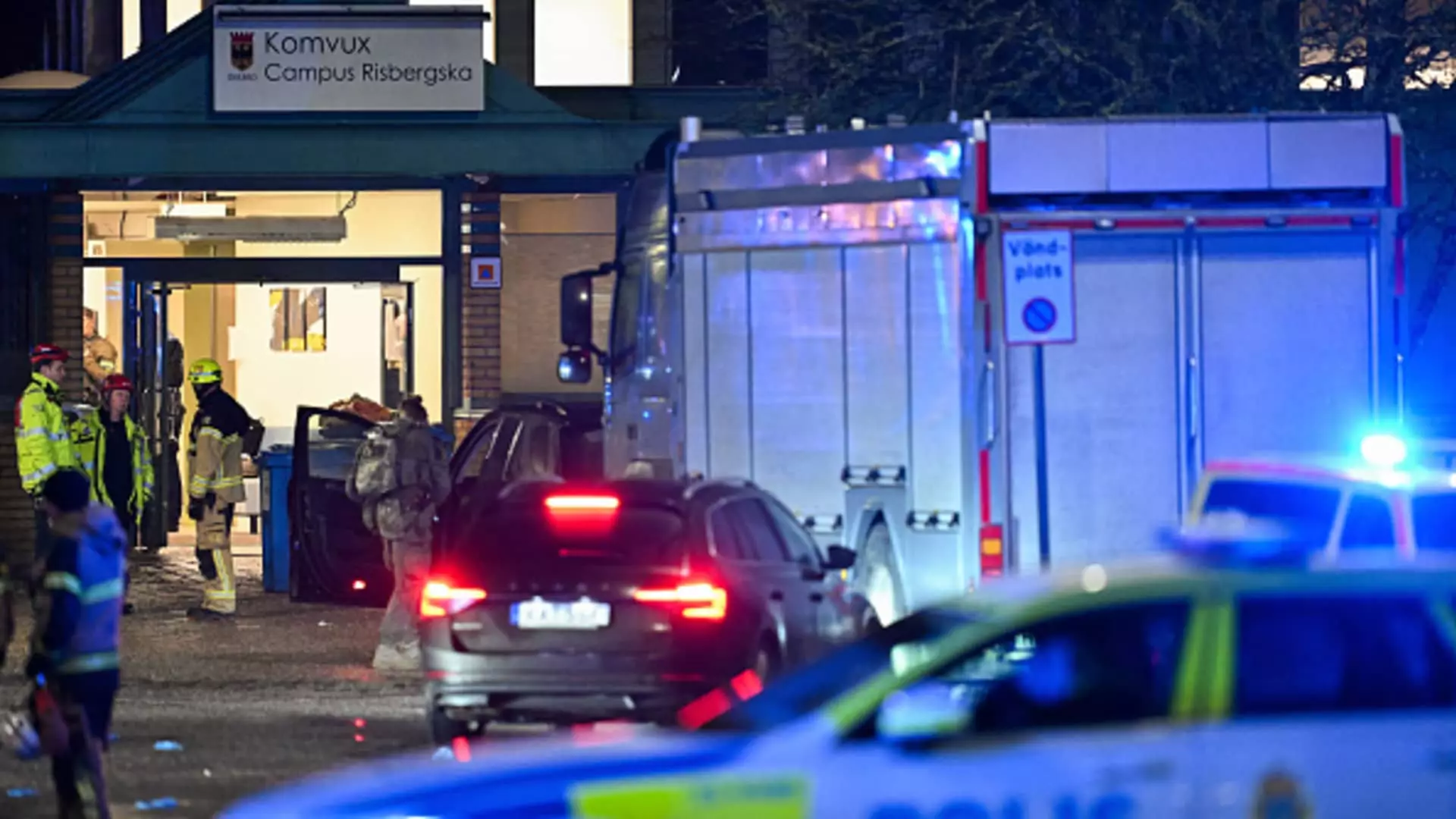In an unimaginable act of violence, a mass shooting at an adult education center in Sweden has left the nation grappling with grief. On a day that spiraled from routine to tragedy, around 10 individuals lost their lives due to a shooting incident at the Risbergska School in Örebro. The local police confirmed that the gunman is believed to have been among those who died, yet investigations are ongoing to determine if additional victims might still be undiscovered within the crime scene. Sweden’s Prime Minister, Ulf Kristersson, expressed the collective anguish of the nation, labeling it a “painful day” while acknowledging the mass shooting as the deadliest in Sweden’s history.
The horror unfolded with alarming speed, sending shockwaves throughout the community as police responded to reports of gunfire. Local law enforcement officials are in the process of piecing together the events, yet the motive behind the attack remains unclear. This uncertainty stirs not only fear but a deeper concern about the growing challenges of safety in public spaces.
The Risbergska School, where the shooting occurred, serves a diverse population, including many immigrants aiming to enhance their education and employment prospects. These adult education programs are crucial in a country that values integration and support for newcomers. The attack at such a revered institution highlights the vulnerability of educational spaces, which are designed to be safe havens for learning and growth.
Maria Pegado, a teacher at the school, shared her harrowing experience of the chaos that ensued. Her account of students fleeing amidst gunfire encapsulates the immediate and visceral fear felt during such tragic events. Witnesses like Pegado illustrate not only the panic but the resilience found in those who prioritize the safety of others in life-threatening situations.
As the investigation unfolds, the implications of this incident reach far beyond individual sorrow. For a nation recognized for its progressive values and low crime rates, this event raises significant alarms regarding public safety and mental health issues, as well as the emotional aftermath that survivors and families will face.
The Broader Context of Gun Violence in Sweden
Sweden has been experiencing a notable rise in gun violence, particularly related to gangs involved in criminal activities such as drug trafficking. Although the country has stringent gun laws, the prevalence of illegal firearms has surged alongside escalating gang-related incidents. The notion that such violence has infiltrated spaces intended for learning poses serious questions about societal welfare and the effectiveness of current law enforcement strategies.
This latest incident differs starkly from previous attacks that have, in many ways, redefined safety in public spaces. Historical context shows that while violent acts in schools are rare, the implications of gang violence and its impact on overall community safety are becoming increasingly relevant. Such acts force society to confront not only the immediate outcomes but also underlying social issues that contribute to such desensitized violence.
The aftermath of the Örebro shooting compels a national discourse about safety, mental health resources, and the reality of living in a society where violence can erupt unexpectedly. As community leaders, government officials, and citizens alike process this tragedy, a unified voice demanding change grows louder. Prime Minister Kristersson’s acknowledgment of the “darkness” that now looms over Sweden illustrates a pivotal moment for a country grappling with the consequences of violence.
Messages of solidarity from both Swedish authorities and the broader European community reveal a collective mourning. Condolences from figures such as King Carl XVI Gustaf and European Commission President Ursula von der Leyen reflect a widespread concern for not just Sweden’s citizens but the societal implications that extend beyond borders. The unity in grief also serves as a call to action for countries around the world to prioritize preventive measures that combat gun violence and enhance societal protection.
Moving Forward: Building a Safer Future
As investigations continue and the community seeks to heal, it is essential for Sweden to engage in a critical evaluation of its approach to safety and crime. Developing comprehensive strategies that target not only immediate law enforcement responses but also address underlying issues such as mental health support, community engagement, and educational reform is vital.
This tragic event serves as a stark reminder of the fragility of life and the necessity for collective efforts to foster safer environments. As Sweden confronts this defining moment, it can either succumb to despair or rise to transform its pain into palpable change, ensuring that the lessons learned from this dark chapter lead to a brighter, safer future for all.


Leave a Reply